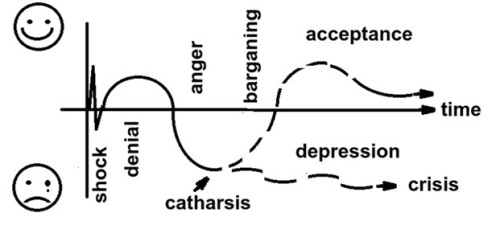Project management in the time of Covid
SERIES ARTICLE
By Dr. Lynda Bourne
Melbourne, Australia
At the time of writing (October 2022), Australian Governments, both Federal and State, have lifted most COVID restrictions. They are now pleading with potential immigrants, students and backpackers to return and help alleviate the widespread worker shortages. Local workers, already in work whether permanent or on contract, are reluctant to return full-time to the office. Some workers are still recovering from the anxiety of the two years of uncertainty or even job losses as employers took advantage of the lockdowns to alter the working conditions of their existing workers. Despite the fervent wishes of employers, workers do not intend or want to return to the previous normal work-life.
This is the final paper in the series: PM in the time of COVID. The objective of this paper is to proffer practical ways to implement the changes proposed in the previous four papers, and to identify processes and actions that can be applied by organizations to assist with the transition to life post-COVID. It is organized as follows: firstly, a discussion of the importance of leadership, engagement of stakeholders, managing uncertainty, and consultation and communication The second part discusses approaches for effective change management. The third section will focus on how to identify and counteract recurring issues in implementing the change.
Essentials of successful change management
The context of any successful change and in particular the context of developing a ‘new normal’ after the disruptions to social and working life need to consider the essentials four parts of any social structure, and in this case the structure of organizations: managing through disruption and uncertainty, leadership, people and communication. Previous papers in this series reviewed how Australian social and working life was disrupted in the context of these four elements. The following section summarizes some of the points of those papers and then discusses how they are important elements for any successful organizational change[1].
Uncertainty
The pandemic and its consequent restrictions reminded us that the future is always uncertain and that we are never mentally or materially prepared enough for risk events such as this one. It also illustrated the ebb and flow of anxiety that comes from facing uncertainty and harsh life events such as death, illness, loss of income, fire and flood. That is the ‘ebb’: the ‘flow’ happens when we adjust to the disruption, or we receive financial or other types of relief. In those circumstances most of us can adapt. There are still individuals who do not adapt or cannot adapt: instances of mental health issues in people of all ages have increased considerably since the start of the pandemic. The aftermath of the disruption and its consequent mental health issues must be considered as an important workplace issue for organizations to accept and deal with.

Figure 1: The journey through disruption and uncertainty (based on Kubler-Ross ‘Stages of Grief’) [2]
Figure 1 shows how exposure to grief, change or uncertainty may lead an individual through many emotions from shock and anger to acceptance in many cases but for others, continued negative emotions. This figure was a useful illustration of how we experienced the pandemic and are still struggling to reach a new stage of acceptance.
More…
To read entire article, click here
Editor’s note: This series is by Dr. Lynda Bourne, author of the books Stakeholder Relationship Management: A Maturity Model for Organisational Implementation (2009), Advising Upwards: A Framework for Understanding and Engaging Senior Management Stakeholders (2011) and several others. She is a globally-recognized expert on project stakeholder engagement, risk management and other PM-related topics.
How to cite this paper: Bourne, L. (2022). Facilitating Change: Project Management in the time of Covid, series article, PM World Journal, Vol. XI, Issue XI, November. Available online at https://pmworldlibrary.net/wp-content/uploads/2022/10/pmwj123-Nov2022-Bourne-Facilitating-Change-pm-in-time-of-covid-series.pdf
About the Author

Dr. Lynda Bourne
Melbourne, Australia
![]()
Lynda Bourne DPM, FACS is a senior management consultant, professional speaker, teacher and an award-winning project manager with 50 years professional industry experience. She has been focussed on the delivery of stakeholder management and other project related consultancy, mentoring and training for clients world-wide.
She has presented at conferences and seminars in South America, Europe, Russia, Asia, New Zealand and Australia to audiences of industry leaders and project managers in the IT, construction, defence and mining industries and has been keynote speaker at meetings and workshops within organisations in the finance and utilities sector.
In 2010 she was engaged as visiting professor at EAN University, Bogota, Colombia, teaching leadership in the Masters of PM Program for five years.
Most recently she was a member of the Faculty of Information Technology, Monash University, lecturing in IT management subjects, in particular, stakeholder management, communication and leadership.
Lynda Bourne has authored the following books:
- Stakeholder Relationship Management: A Maturity Model for Organisational Implementation, (Gower Publishing Ltd, Aldershot – 2009)
- Project Relationship Management and the Stakeholder Circle: A guide for developing stakeholder management maturity in organisations (2010)
- Advising Upwards: A Framework for Understanding and Engaging Senior Management Stakeholders, (Gower Publishing Ltd, Aldershot – 2011)
- Making projects and programs work: What really matters for achieving successful project and program outcomes (2015)
She can be contacted at lynda.bourne@gmail.com
To view other works by Lynda Bourne, visit her author showcase in the PM World Library at https://pmworldlibrary.net/authors/dr-lynda-bourne/
[1] But beware: change is always disruptive – even positive change. The Kubler-Ross stages of grief summarise how it might go OR how it usually goes. The diagram (Stages of Grief) shows it all!! https://speakinggrief.org/get-better-at-grief.
[2] Diagram showing two possible outcomes of grief or a life-changing event (introverted depression or extroverted life enhancing overall benefit). Available from Wikimedia Commons. November 2017









